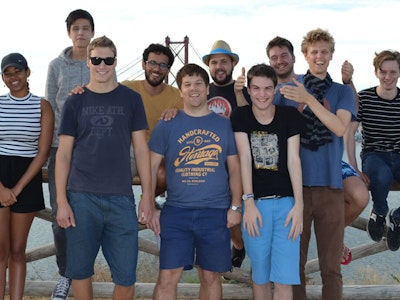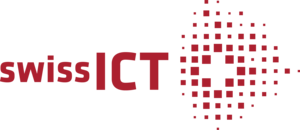Until 2018, we conducted an annual appraisal interview with each of our employees: Both the company and the team member evaluated eight qualities on a numerical scale from one to five. Based on this, we discussed, compared and then set annual goals. We were never really satisfied with this kind of feedback: the implementation caused pressure on all sides, the conversation felt moderately good and the resulting results were of limited value. So we needed an alternative and developed the so-called "Growth Atelier". Find out what it's all about and why we recommend it in this blog post.
A ritual is abolished
Year after year, the same exercise: sometime in autumn, the uncomfortable calendar invitation to the annual appraisal interview appears in the mailbox and immediately pressure builds up: Preparing for and following up the talks is time-consuming and not sexy. Holding the talks is difficult and stressful.
Why do this to ourselves when the whole affair obviously causes negative stress for both sides? Isn't there a better alternative?
This was the question we asked ourselves in 2018. We knew we wanted something different and abolished the ritual for now. Without replacement for the time being: better nothing than a well-intentioned alibi exercise.
Setting the course
The demands on the new instrument to be developed were varied and high:
- Quality: it is difficult and very subjective to evaluate performance by means of a number. We therefore wanted to do without numbers and grades and assess qualitative performance also qualitatively.
- Rhythm: An annual cycle is too slow and too reactive. We therefore considered it more valuable to receive more frequent, shorter feedbacks than larger and more infrequent ones. (In this context, we would also like to mention our complementary appreciation tool gifcoins.io, which relies on positive, digital peer-to-peer feedback).
- Personality: Apart from the fact that we cannot measure performance in IT anyway, the event should be streamlined: Strategic development of skills, target definition or even initial ignitions for measures (in the worst case, a dismissal) have no place in such a conversation, in our view. The instrument should be dedicated to personal progress. Everything else must be dealt with elsewhere.
The Appraisal Interview 2.0
After three executions, corresponding evaluations and optimisations derived from them, we finally found the right result for us that meets all the requirements described. It works as follows:
Each person gives each person in the team a 5-minute feedback on their work and performance. These feedbacks are based on the following three questions:
- What did I notice positively about you?
- Where would I like to see a change?
- What else would I like to tell you.
Before the respective speed date, both people are given 5 minutes to prepare in writing. The notes are written down on an A3 sheet of paper per person. At the end, each participating person receives their A3 sheet with all the team members' notes on their own person for further use or as a reminder.
In order to simplify the preparation, each A3 sheet contains the tasks assigned to the person (for example, "Software Development", "Organisation Learning Week") and the projects worked on (for example, "Portal A", "Platform B"). On the one hand, this directs the focus of the feedback to the (official) tasks. On the other hand, a list of the projects worked on helps the feedback givers to think about the areas in which they may have had interactions.
The process of reflecting and collecting keywords is deliberately done physically and not digitally: On the one hand, all participants receive a physical artefact with their feedback, which serves as a summary. On the other hand, the feedback givers and receivers are not separated from each other by a screen.
What has proved useful is to plan the speed dates in advance, as this is the only way to avoid everyone being able to talk to everyone without long waiting times.
As for the cycle, we have changed from an initial four-month to a six-month rhythm. This feels ideal for us.
We have found a solution where everyone gives feedback in a speed-dating style, the focus is on interaction (and not documentation), the cycle takes place several times a year and there is no need for elaborate preparation and follow-up. We call it Growth Atelier and are very happy with it.
The underlaying foundation
The breeding ground and foundation for the success of our Growth Atelier are two prerequisites: We live an open culture and know (and more importantly, master) the rules of giving feedback.
For a mutual feedback process to work, there must be no hierarchical or age-related barriers. As long as feedback meets the criteria of good feedback, each person must be allowed to say anything. We are grateful for all feedback – it ultimately serves our personal progress.
We live the culture of a knowledge-based organisation (the person with the most knowledge takes the lead in the assigned area), which supports such an endeavour.
At the beginning of each Growth Atelier, we recap the rules of good feedback. In summary, the four key points are as follows:
- Feedback is descriptive (and does not manifest facts).
- Feedback is specific (not generalising).
- Feedback is subjective (→ ego view)
- Feedback only concerns areas that can be influenced
The result speaks for itself
Our new agile process for annual appraisals relies on a mutual and interactive exchange. The feedback received is more valuable, more broadly based and generally provides good feelings and more motivation: the evaluation of our last implementation shows very positive values both in terms of general satisfaction with the event and subjective competence in giving valuable feedback.
It's a fool's errand to think that only the management is up to this task.
How do you deal with this issue in your team or in the company? We are very interested. Feel free to write us in the comments or by email.
Update from 20 December 2022:
This blog article has generated a great response and numerous enquiries. For this reason, we would like to give a short update:
In the meantime, we have already made another iteration with the following adjustments:
- Fewer pairings: in summer we still had about 10-12 pairings per person. It felt very stressed. Each person can now specify 2 people from whom they want to give feedback and to whom they want to give feedback. We match all the requests and add 2-3 "random pairings" so that each person has between 5-7 meetings of 12min each. It is now much less stressful.
- Prepared dates: As we now knew the pairings approx. 2 weeks in advance, we could prepare ourselves accordingly (=think about it). The notes are still handwritten per person. We appreciate having a physical A3 artefact at the end of the afternoon.
- A review of the last conversations takes place in that we hand out a copy of the last artefact to everyone after the Growth Atelier. This way you can see (if you haven't already looked for it anyway) what has changed. Afterwards, each person fills out a development plan for themselves (2-3 key words over the horizon 2-3 months as well as 2-3 years). The company only takes note and supports as much as possible.













